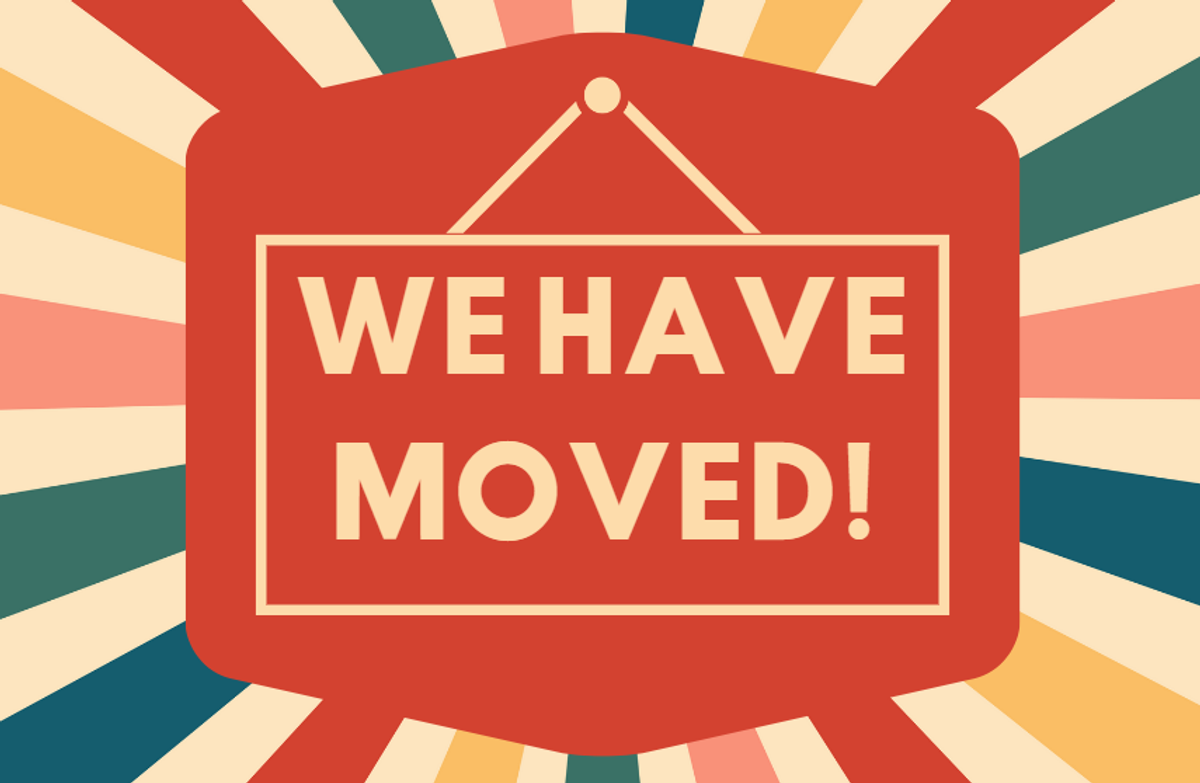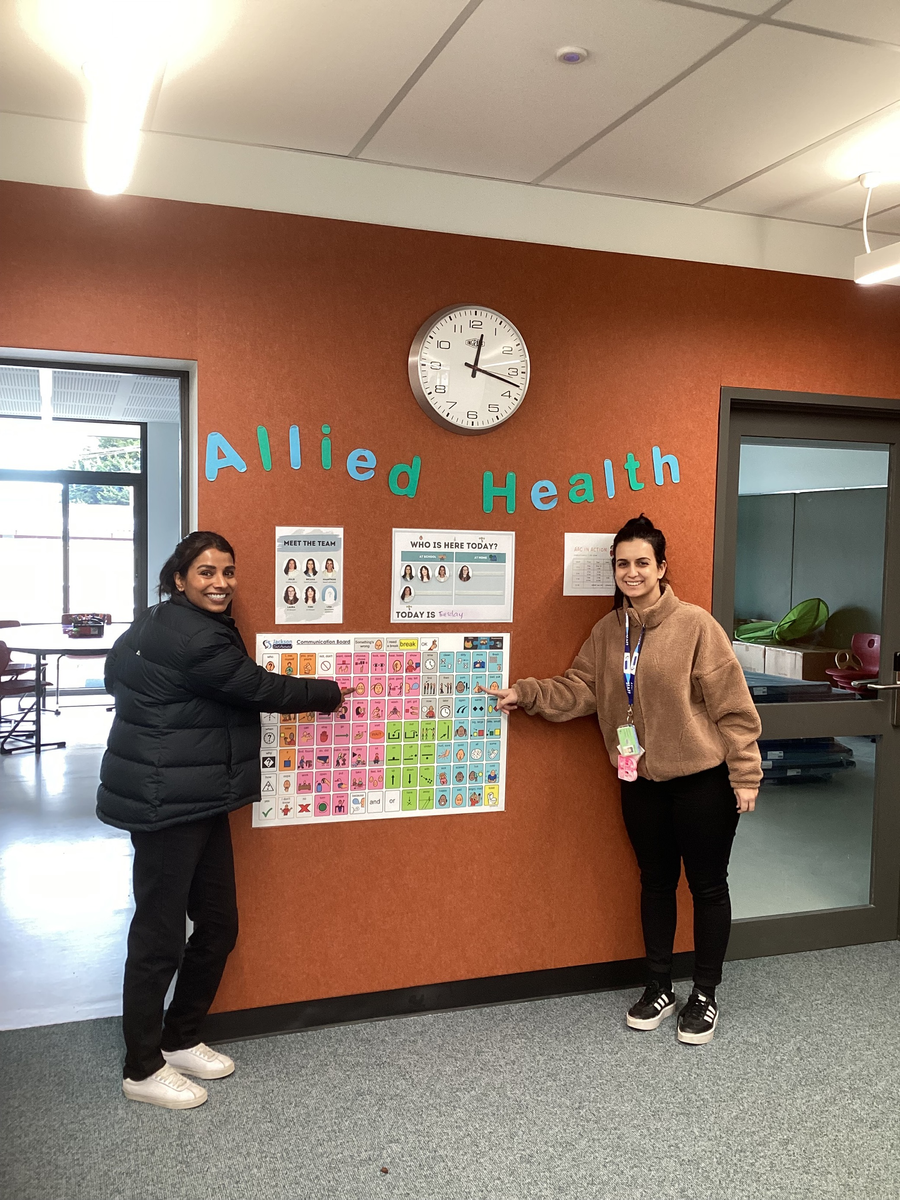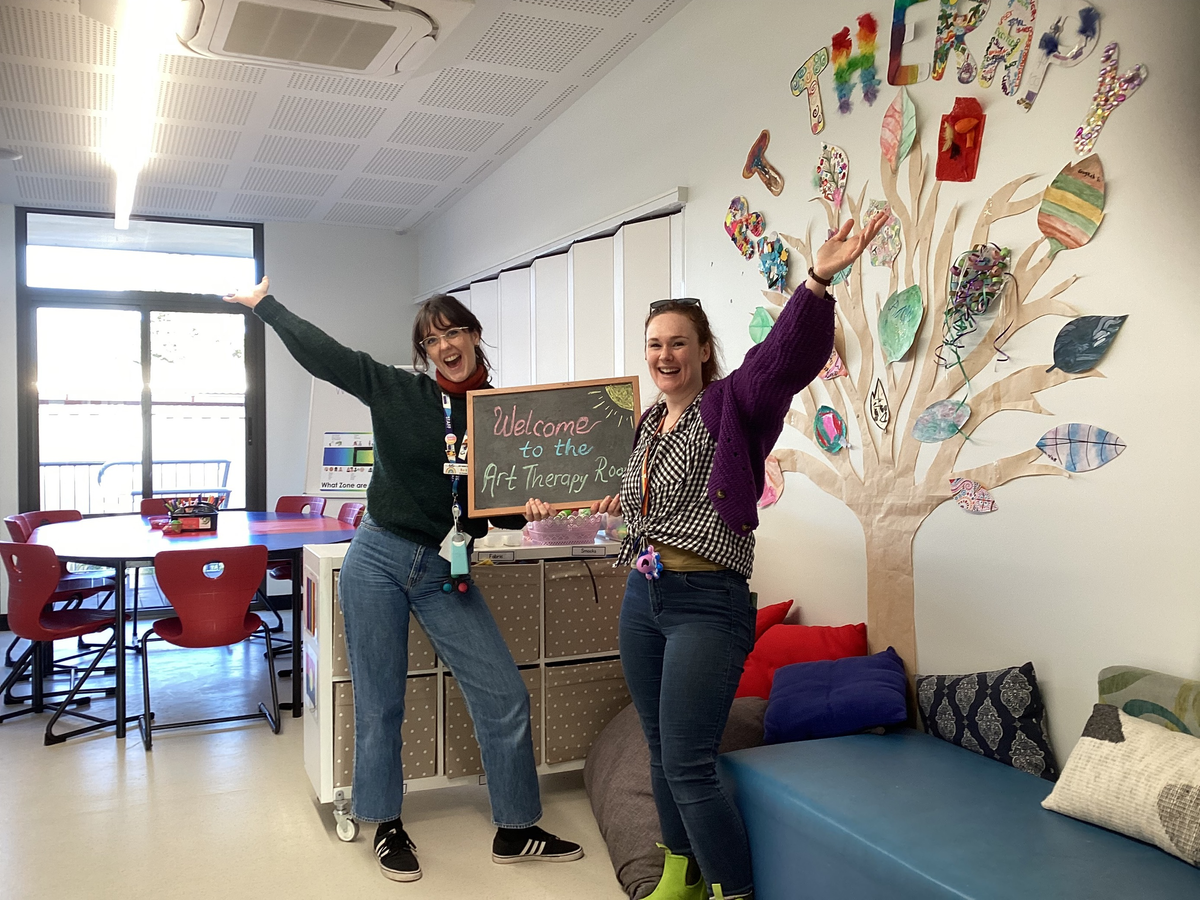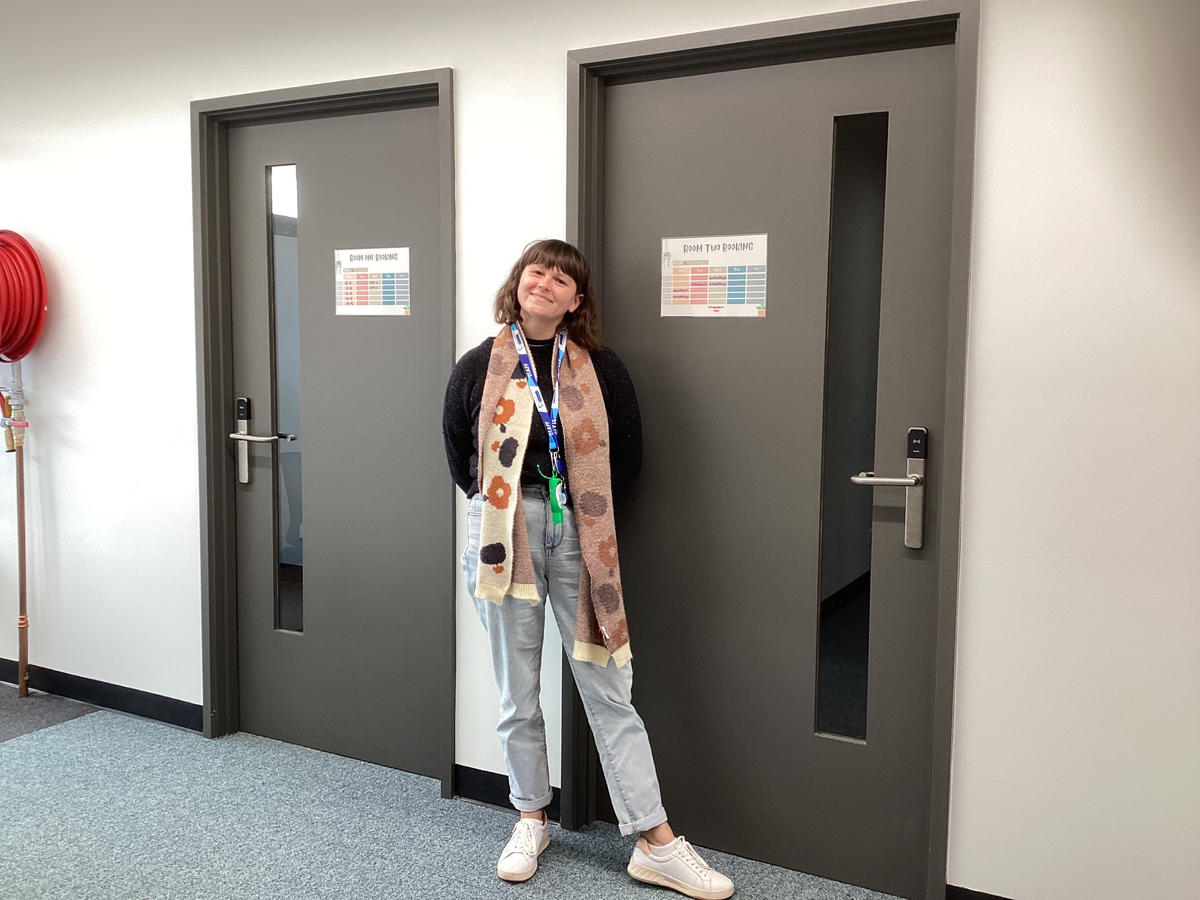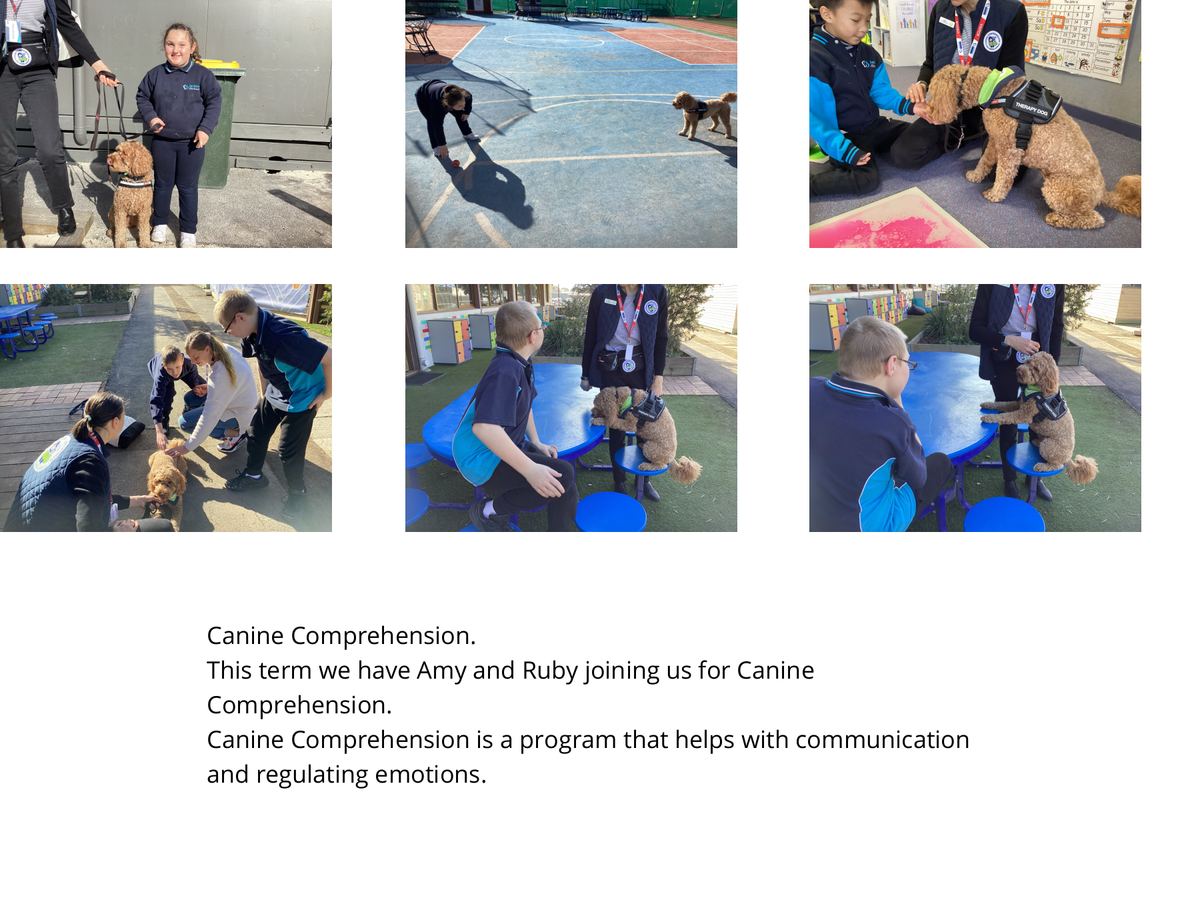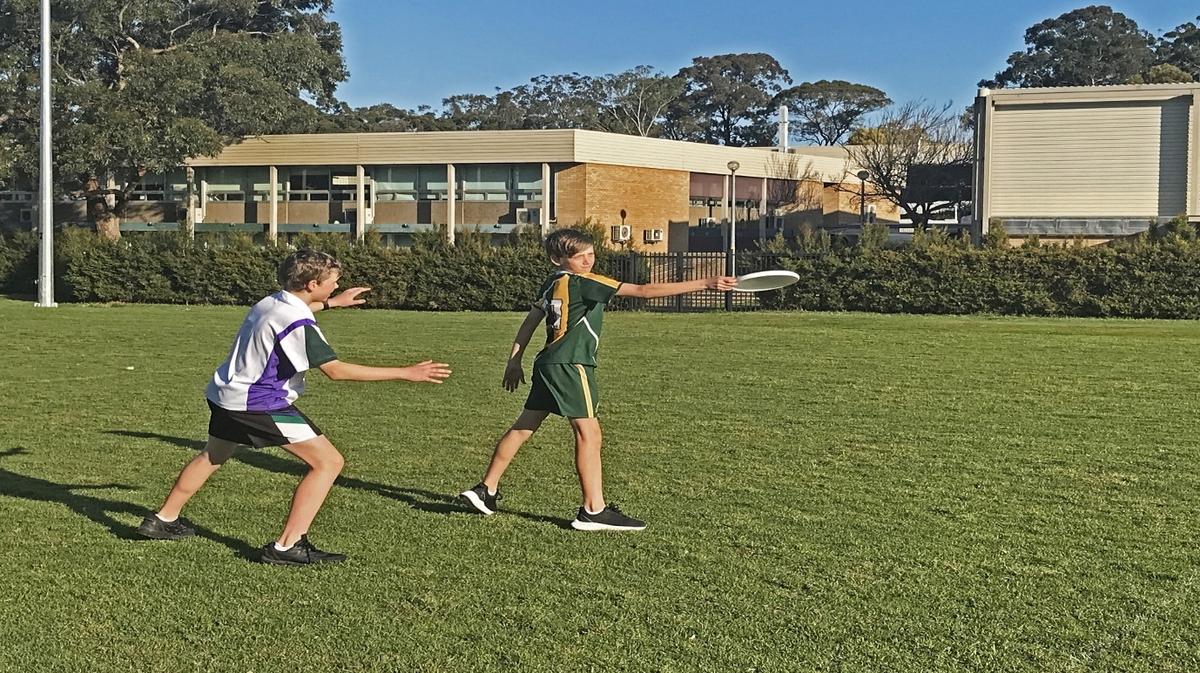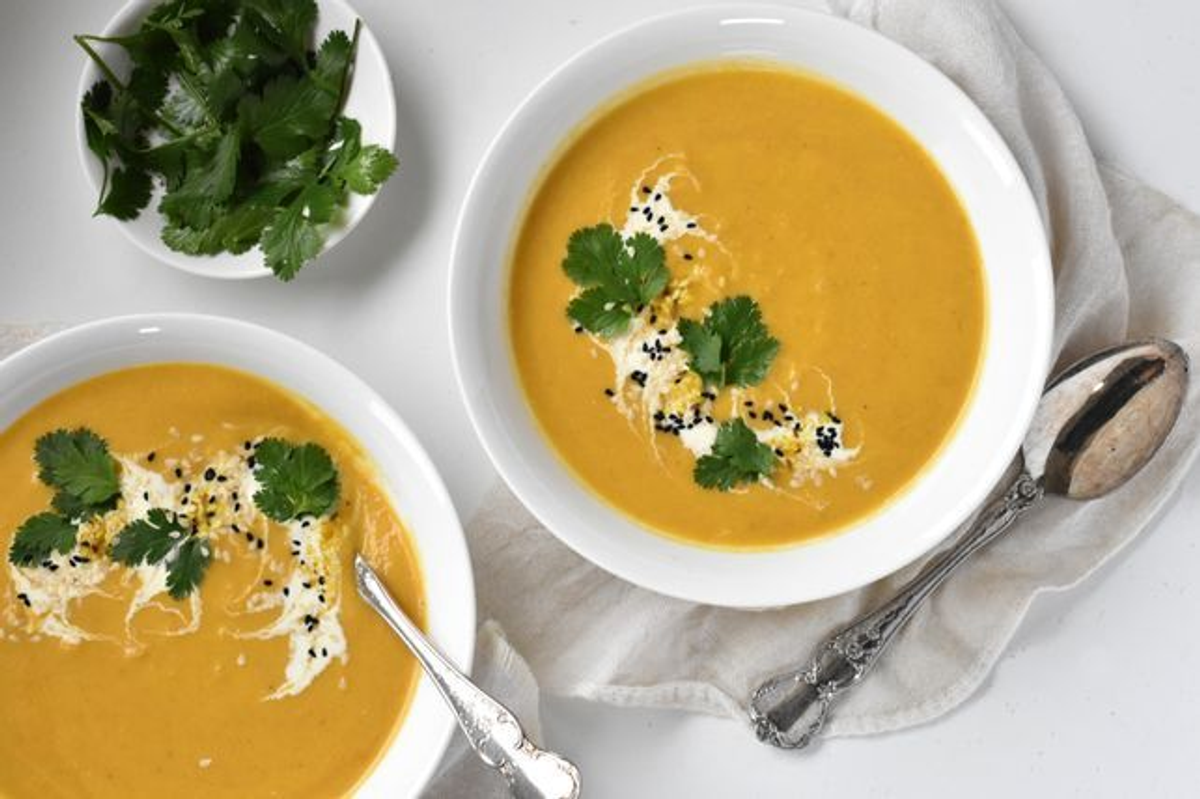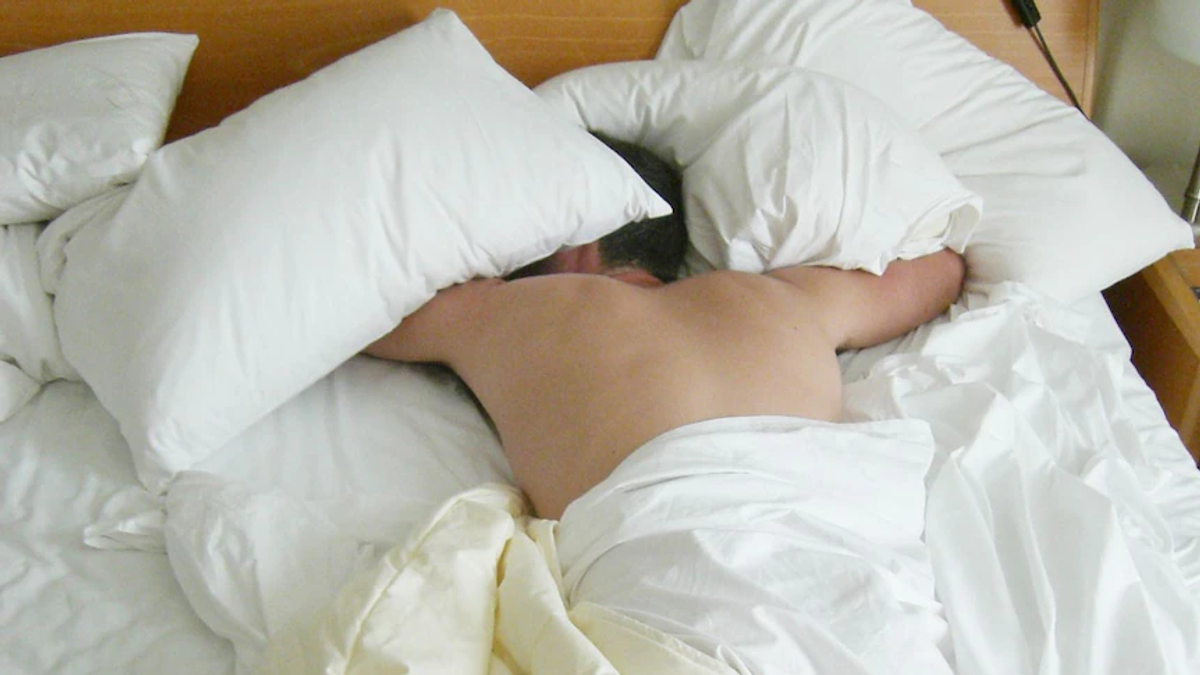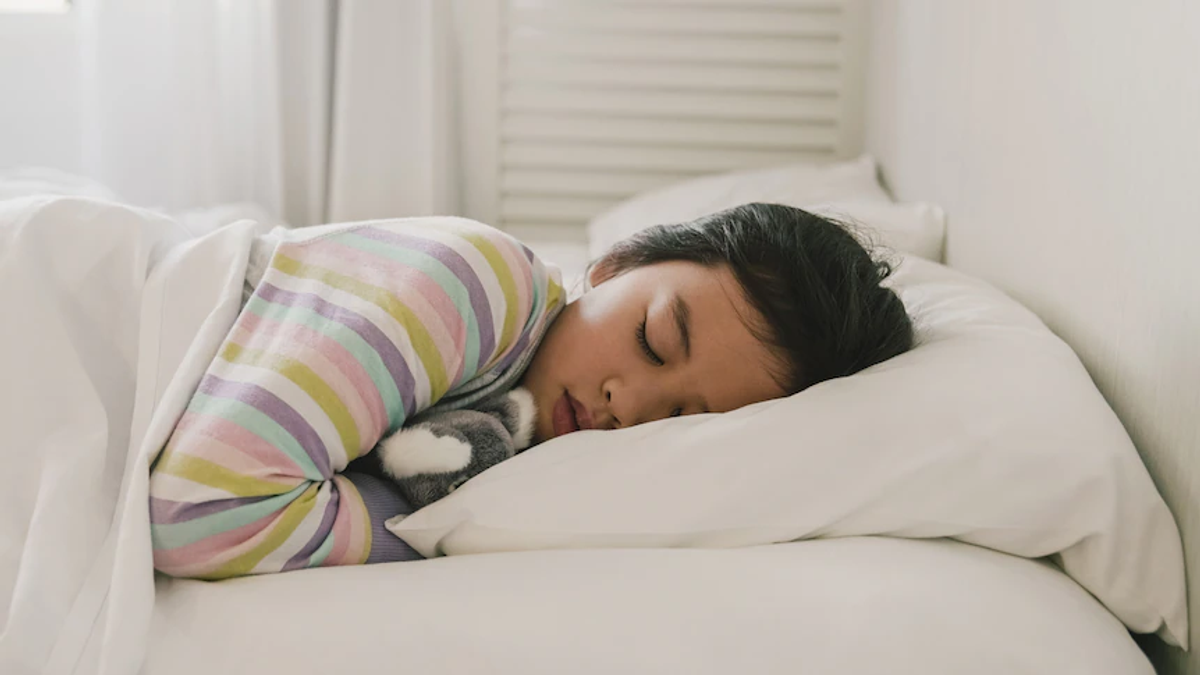Health & Wellbeing News

ALLIED HEALTH
In term 3, we moved into a new allied health space right next to our prep building.
The allied health hub has two meeting/therapy rooms, an art therapy space, and a therapy/play space. We are excited to have some students here mid-term 3!
CANINE COMPREHENSION
HEALTH AND FITNESS NEWS
Fly program taking off in secondary schools around Australia
In Term 4 last year, our Year 9/10 students received a four-week coaching session in Ultimate Frisbee. Ultimate Frisbee is a sport which is unique in many aspects. It is surprisingly, an incredibly pleasurable experience when seeing this device fly! And it can fly a considerable distance with not a lot of effort. This would also resound with any of you out there who may golf! Another story for another day, maybe. It is also a sport which can be enjoyed by all levels of fitness levels. It combines both gross motor and fine motor skills but can be learnt very quickly. It is a cheap past-time, with basic model frisbees available for around ten dollars. The following article comes courtesy of the Sporting Schools Australia Website. Jackson School students benefit termly via this Federal Government Initiative.
Did you know Ultimate Frisbee is one of the few sports without a referee?
Run on an honesty system, Ultimate Frisbee supports players to self-referee and negotiate outcomes with their opposition during games.
“Ultimate Frisbee is about playing fair and being able to speak respectfully with your opponent and teammates to manage the game” said Dan Rule, High Performance and Business Development Manager at Ultimate Australia.
“Our new Fly program, aimed at secondary schools, helps to teach students these important skills, while learning and having fun with their peers” he said.
Fly is a Sporting Schools program from Ultimate Australia that uses a game-based approach to introduce Year 7 and 8 students to the fun and emerging team sport of Ultimate Frisbee.
The program not only provides physical benefits, but also promotes communication and conflict resolution skill development amongst students.
“The Fly program aligns with the physical literacy framework by enhancing the physical, psychological, social and cognitive learning of participants,” Dan added.
“Most children haven’t had much experience throwing a frisbee, so students that aren’t as involved in sport have a chance of excelling. The Fly program flips the typical hierarchy of a PE class.”
“When you use a soccer ball or a footy you usually have standout sporting stars because some children have already developed those skills. But with a frisbee, it levels the playing field,” Dan said.
The Fly program was piloted in secondary schools across three states before being added to the Term 4 Sporting Schools program, and has received overwhelmingly positive feedback from participating schools.
“Participants love the game-based approach, the novelty of using a frisbee and having ownership of how the game runs,” Dan said.
“Teachers particularly liked the social and cognitive aspect of the Fly program and that there are many opportunities for students’ personal growth.”
The Fly program is now available for Secondary Schools, to book a program or for more information visit Sporting Schools or the Find a Club website.
FOOD GLORIOUS FOOD
It is soup season if you hadn’t noticed. Make a big pot and you’ve got a week’s worth of meals. Thousands of varieties to choose from just add some fresh bread and there you go. The following recipe is once again brough to you from the Australia’s Best Recipes Website, a free and informative on-line resource.
“This heart-warming carrot soup has been a family winter favourite, for as long as I can remember! It turns simple ingredients into a quick and delicious meal which is naturally gluten free and can be made vegan-friendly.”
- bakingenvy
HEARTWARMING CAROT SOUP
Ingredients
1 tbs olive oil
1 onion, finely diced
2 tsp crushed garlic
1 tsp finely grated ginger
2 tsp ground cumin
1 tsp ground coriander
1/4 tsp cayenne pepper
6 medium carrots, coarsely grated
3/4 cup dried red lentils, rinsed and drained
1.5 litres (6 cups) Massel* Vegetable Liquid Stock
Salt and pepper, to taste
Natural yoghurt, to serve
Fresh coriander sprigs, to garnish
Method
Heat the olive oil in a large saucepan over medium-high heat. Add finely diced onion, garlic and ginger and cook, stirring, for 5 minutes or until onion is soft and translucent.
Add cumin, coriander and cayenne pepper and cook for 1 minute or until aromatic.
Add grated carrots and lentils and cook, stirring, for a further 1 minute.
Add the vegetable stock and bring to a boil. Reduce to a simmer and cook, covered, for 40 minutes or until lentils are soft. Using a stick blender, whiz the soup until smooth. Add salt and pepper to taste.
Serve with a dollop of natural yoghurt and garnish with a couple of fresh coriander sprigs, if desired.
EQUIPMENT
Stick blender
NOTES
To make this recipe vegan-friendly, omit the natural yoghurt.
NAN'S CREAMY CORN SOUP
Easy 0:10 Prep 0:20 Cook 4 Servings
“This soup takes only 30 minutes to make and can be made in advance, so a warming bowl of creamy corn goodness is ready for whenever you'd like it. In our house this is a healthy and hearty soup we eat on a winter's morning.”
- Summer69
INGREDIENTS
1/2 Onion, diced
1/2 Carrot, diced
2 Potatoes, diced
2 Sliced ham, diced
100g Corn
300g Canned creamed corn
20g Butter
1 tbsp Plain flour
1 tsp Massel* Chicken Stock Powder
1 cup Water
1 cup Milk
Salt and pepper, to taste
METHOD
Cut vegetables and ham to 5mm dice.
In a medium saucepan, melt butter over medium heat and cook potatoes, onion, carrot, and ham for 2 minutes.
Reduce heat to low, add flour and combine with other ingredients.
Add corn, creamed corn, water, milk, and stock. Simmer over medium heat until carrot and potatoes are cooked through.
Season to taste with salt and pepper. Serve in a bowl, top with chopped parsley.
Parsley, chopped to serve
Sleep study paints troubling picture of poor sleeping patterns in young Australian adults
By Nicolas Perpitch
Help keep family & friends informed by sharing this article.
In term 4 of last year, we shared an article on the importance of sleep and particularly regarding sleep and children. The following article comes from the ABC News Website which encourages readers to share articles on public health and such.
Too many young Australians are not getting a good night's sleep, with a quarter saying they regularly wake up feeling not well-rested, putting their physical and mental health at risk, according to new research.
It is the first study to examine the sleep health of young Australian adults, using both a questionnaire and an analysis of their sleeping habits.
Of the 1,234 people who took part in the research, published in the Australian and New Zealand Journal of Public Health on Tuesday, 60 per cent said their sleep was constantly changing and irregular.
KEY POINTS:
- The study examined the sleep of 1,234 young Australian adults
- Those studied were part of Western Australia's Raine Study
- Almost a third of participants got less than the recommended amount of sleep
Called "Sleep health of young adults in Western Australia and associations with physical and mental health", the study also found 30 per cent of the participants slept less than the optimal seven to nine hours a night, 18 per cent took more than 30 minutes to fall asleep and 60 per cent did not have regular sleep hours.
Clinical psychologist and lead researcher Dr Alex Metse, from the University of the Sunshine Coast, said 10 per cent also reported their bad night's sleep noticeably impacted how alert they felt during the day.
"We wanted to see which of these dimensions were most strongly associated with the physical and mental health outcomes that we considered," Dr Metse said.
"And really interestingly, we found it was that young adults' satisfaction with their sleep and reports on how alert they were feeling during the day that were most strongly associated with those outcomes."
YOUNG ADULTS 'PARTICULARLY VULNERABLE'
The study acknowledges sleep disorders, such as insomnia or sleep apnoea, are well associated with significant health impacts.
What happens to your brain if you don’t get enough sleep?
We live in a world where we frequently don't get enough sleep, but we need sleep if our brains are going to stay healthy and function efficiently. An expert explains what happens to your brain if you don't get enough sleep.
But it said poor sleep, due to not enough, too much, irregular or unsatisfactory sleep was also a risk factor "for conditions including cardiovascular disease, diabetes and depression and poorer mental and physical health generally".
This was particularly important in young adulthood, which the study said was a "critical phase for the development of a healthy lifestyle and habits, which often continue into adulthood".
"Young adults, therefore, may be particularly vulnerable to experiencing poor sleep that persists into adulthood and, as a result, are a priority population for primary and secondary prevention efforts to promote sleep health and reduce the risk of various chronic diseases," the report said.
The 1,234 participants in the study come from the Western Australian Raine Study, the oldest pre-birth longitudinal study in the world.
It began in 1989 when 2,900 pregnant women first volunteered to be part of the study and extensive data was collected during pregnancy and at the birth of their children.
Young adulthood is a particularly vulnerable time for those suffering from poor sleep.
Then from 2012-2014 a follow-up was conducted, with those children born into the study in their early 20s, looking into their sleep, activity, lung health and work.
The sleep aspect involved a questionnaire and a sleep study across two nights.
PUSH FOR CHANGE
Dr Metse and the other researchers believe the findings can help improve public health, through education campaigns to inform the public about what a "normal" night of sleep can look like, change expectations, and create healthy sleeping habits.
They also suggest screening guidelines where a doctor or other health practitioner could ask young adults a question or two about how well they sleep to identify who might be at risk of poor physical and mental health related to sleep.
"It would be a multi-pronged public health intervention, I suspect, but one part of that might be trying to detect poor sleep, that might be a risk factor for poor health, so that we can then start the ball rolling in helping young people to optimise their sleep," Dr Metse said.
Terry Slevin, chief executive of the Public Health Association of Australia, said the study reinforced how important it was to get a good night's sleep.
"Like good nutrition, like good physical activity, you need to plan for it, you need to do it well,"
Adjunct Professor Slevin said. He agreed, a simple question to someone about how they are sleeping might be an important starting point.
"It's inoffensive," he said.
"'How's your sleep going?', is a neutral sort of question that could be a window into other health issues that might be around the corner."

